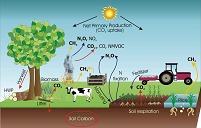
Ebook
Forestry and water conservation in South Africa : history, science and policy
Contents
Intro; List of Illustrations; Acknowledgements; Author Biographies; Preface; Introduction; 1. 'Fit the Tree to the Climate': The Cape Model of Forestry; 2. Forestry in Reconstruction South Africa: Imperial Schemes, Colonial Realities, c. 1901-1905; 3. Educating a Nascent 'South African' Forestry Corps, 1880-1932; 4. Afforestation: Politics, Labour, and Science, c. 1910-1935; 5. Competing Agendas? Afforestation, Catchment Management and Indigenous Forests, c. 1910-1935; 6. 1935: The Fourth British Empire Forestry Conference in South Africa and the Origins of a Consensus Science Program.
7. Jonkershoek as Fulcrum: The Forest Hydrological Research Program8. Forest Hydrology in the Policy Domain; 9. 1965 to 1995: Fluctuating Fortunes and Final Dividends; 10. Devolution, Drift and New Directions, 1990-2014; Selected Bibliography.
Abstract
This innovative interdisciplinary study focuses on the history, science, and policy of tree planting and water conservation in South Africa. South Africa's forestry sector has sat - often controversially - at the crossroads of policy and scientific debates regarding water conservation, economic development, and biodiversity protection. Bennett and Kruger show how debates about the hydrological impact of exotic tree planting in South Africa shaped the development of modern scientific ideas and state policies relating to timber plantations, water conservation, invasive species control, and biodiversity management within South Africa as well as elsewhere in the world. Forestry and Water Conservation in South Africa shows how scientific research on the impact of exotic and native vegetation led to the development of a comprehensive national policy for conserving water, producing timber, and protecting indigenous species from invasive alien plants. Policies and laws relating to forests and water began to change in the late 1980s and early 1990s as a result of political and administrative changes within South Africa. This book suggests that the country's contemporary policies towards timber plantations, guided by the National Water Act of 1998, need to be reconsidered in light of the authors' findings. Bennett and Kruger also call for more interdisciplinary research and greater emphasis on integrated policies and management plans for forestry, invasive alien plants, water conservation, and biodiversity preservation.
Availability
No copy data
Detail Information
- Call Number
-
-
- Publisher
- : .,
- Physical Description
-
xviii, 269 pages : illustrations (some color)
- Language
-
English
- ISBN / ISSN
-
-
- Edition
-
-
- Keyword(s)
Other version/related
No other version available
File Attachment
Comments
You must be logged in to post a comment
 Climate Change
Climate Change  Water Resources
Water Resources  Land Use
Land Use  Agriculture
Agriculture  Disaster Risks Management
Disaster Risks Management  Biodiversity
Biodiversity  Energy
Energy  Marine Science
Marine Science  Sustainable development
Sustainable development  Geography
Geography